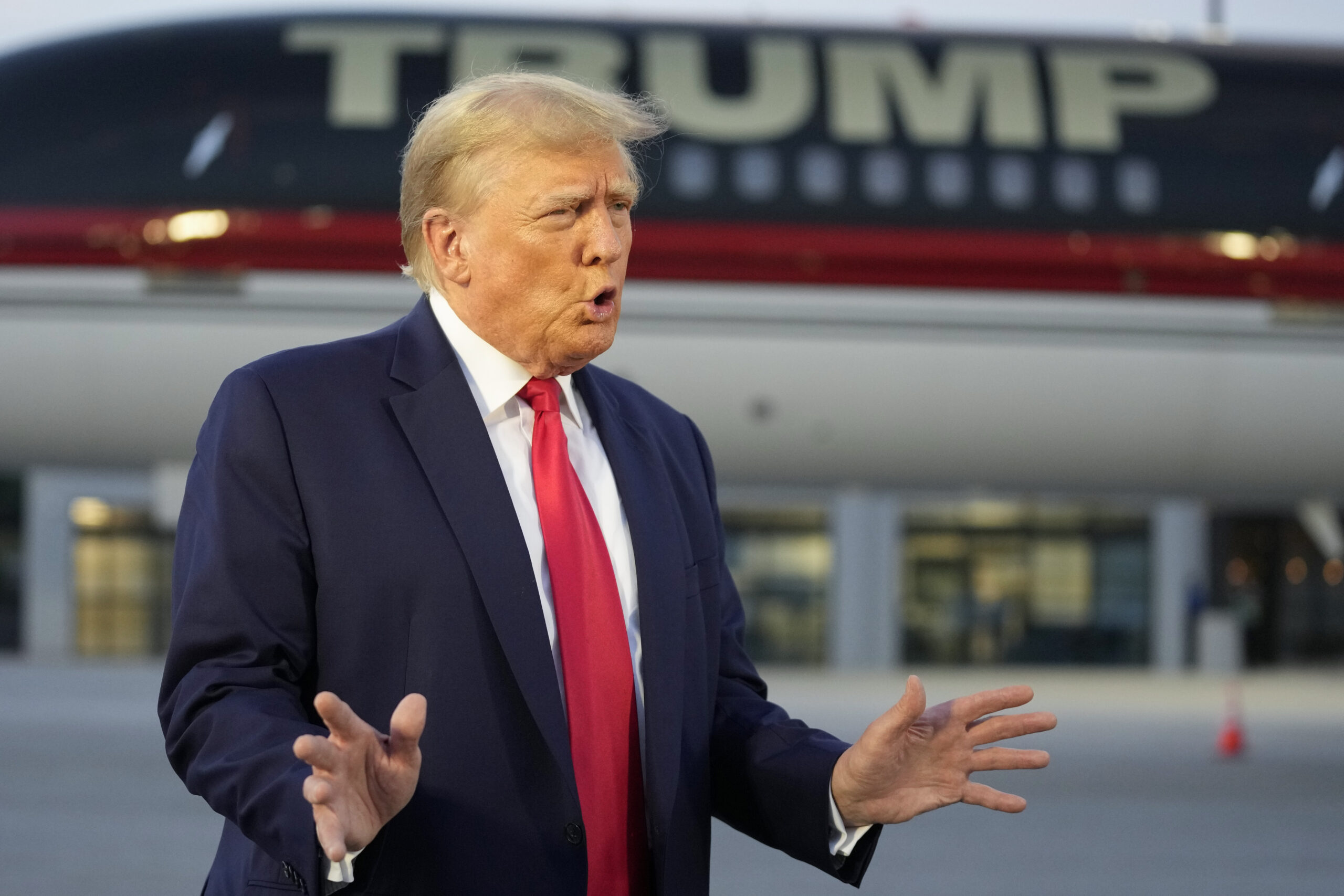
AP Picture/Alex Brandon, File
The Wall Street Journal pulled no punches on Wednesday evening in responding to a up to date letter to the editor from former President Donald Trump defending his change tariffs and “economic nationalism.”
The Journal printed an editorial on August twenty fourth titled, “Trump Courts a International Alternate War,” which blasted the GOP frontrunner for announcing he would impose a sweeping 10 percent tariff on all international goods if again to the White House.
The editorial blasted the policy idea noting that Trump’s prior tariffs ended up costing American consumers tens of billions of greenbacks in value hikes and tons of of lots of jobs. The Journal defined the closing president to recommend this kind of drastic protectionist policy was once Herbert Hoover beforehand of the Nice Despair.
Trump spoke back and accused the Journal of repeating “debunked talking factors from corporate-funded research about our tariffs’ alleged influence on American customers.”
“Price increases for consumers had been just about nonexistent and there was effectively no inflation after I was president. The exchange deficit with China used to be down yr-over-12 months for 5 straight quarters sooner than Covid hit in 2020,” Trump wrote ahead of blasting the financial system beneath President Joe Biden.
Per week later, the editorial board responded to Trump’s letter and made clear they stand at the back of their insistence that a sweeping ten % tariff would be absolutely devastating to each the U.S. and international economic system.
“The commercial evidence is unambiguous that border taxes are passed on to customers, and Mr. Trump’s tariffs have value Americans tens of billions of bucks. Readers can look at the analyses and make up their own minds,” wrote the board in direct response to Trump’s claim they have been parroting “debunked talking points.”
The board went further and argued that Trump’s exchange tariffs no longer best handed prices on to U.S. customers but in addition accomplished nothing material. The Journal explained that whereas the trade deficit with China is indeed down, all Trump’s insurance policies did used to be shift the deficit to different elements of the sector, which would have took place regardless.
“Seeing that 2017, when Mr. Trump entered the Oval Workplace, goods imports to the U.S. in nominal greenbacks have elevated 174% from Vietnam, 116% from Taiwan, 96% from Bangladesh, 89% from Thailand, 76% from India, and 62% from South Korea. Perhaps Mr. Trump must begin giving out marketing campaign hats that say ‘Make Vietnam Nice Once more,’” wrote the board.
The Journal made the case that U.S. buyers are shifting far from China, no longer on account of the tariffs but as a result of the instability inside the u . s . a .. Furthermore, the board brought that Trump can have carried out the identical outcome quicker by means of having stayed in the “Trans-Pacific Partnership alternate settlement that excluded China.” Additionally they make the purpose that Trump’s tariffs bring to a halt American farmers from key markets leading to billion-buck tax-payer bailouts that had been both wasteful and accomplished nothing.
Looking to the future, the board doubled down on its criticism of Trump’s new proposed tariffs and argued he simply doesn’t bear in mind the realities of worldwide exchange:
Mr. Trump’s solution, as normal, is to quintuple down in a 2nd term. A common 10% tariff would “raise taxes on American shoppers through more than $300 billion a 12 months—a tax elevate rivaling those proposed via President Biden,” the Tax Foundation says. Including expected retaliation, it would “shrink the U.S. economic system via 1.1 % and threaten more than 825,000 U.S. jobs.”
Slapping 10% tariffs on the whole thing made by using Vietnam, South Korea and different U.S. companions would have the impact of leaving behind them to China’s financial sphere, which is the other of America’s geostrategic pursuits.
The editorial ends by calling out Trump’s “great mistake” in his dealing with of the financial system: “his perception that change is a zero-sum train.” The board argues, as an alternative, that global change bargains a “mutual benefit” to each buying and selling companions and is a benefit to the American shopper.
The post WSJ Warns In opposition to Huge Cost of Trump’s Change insurance Policies, Days After He Touted Them In The Paper first regarded on Mediaite.



